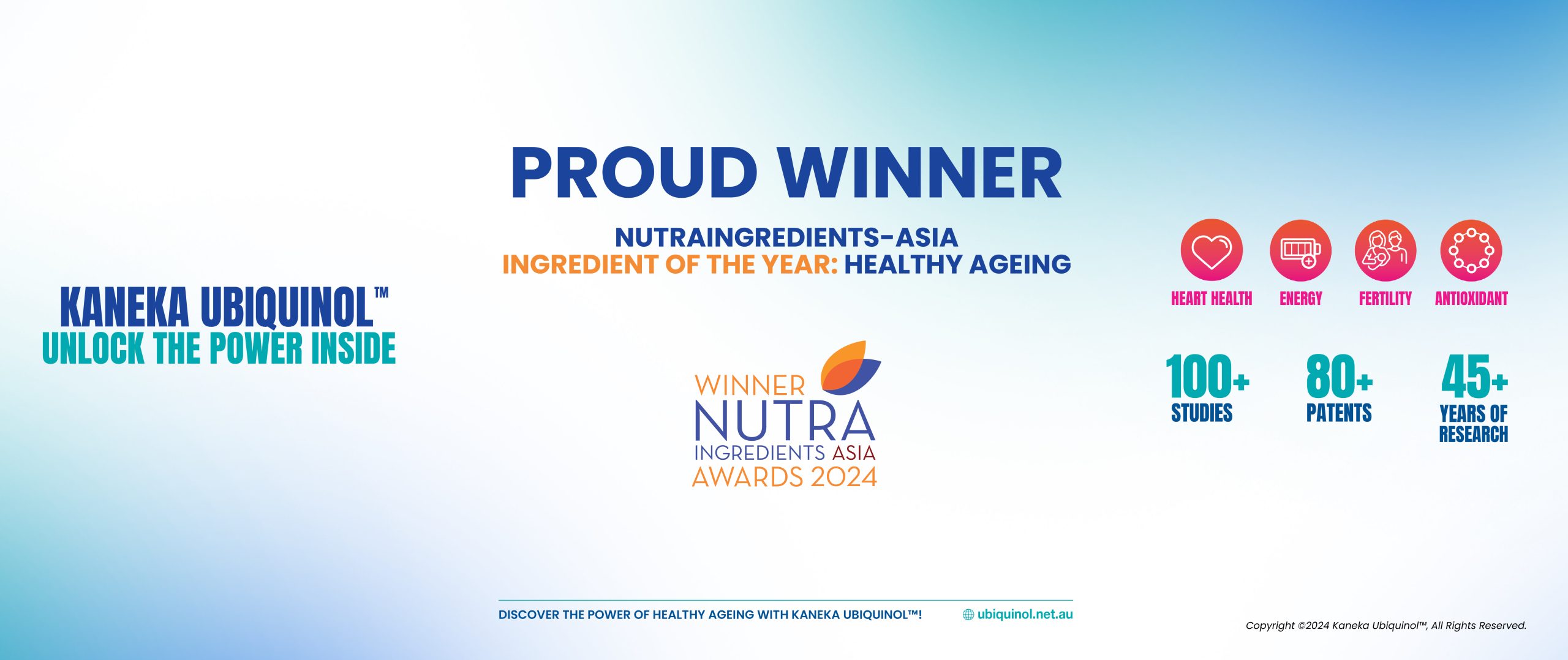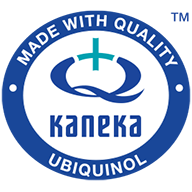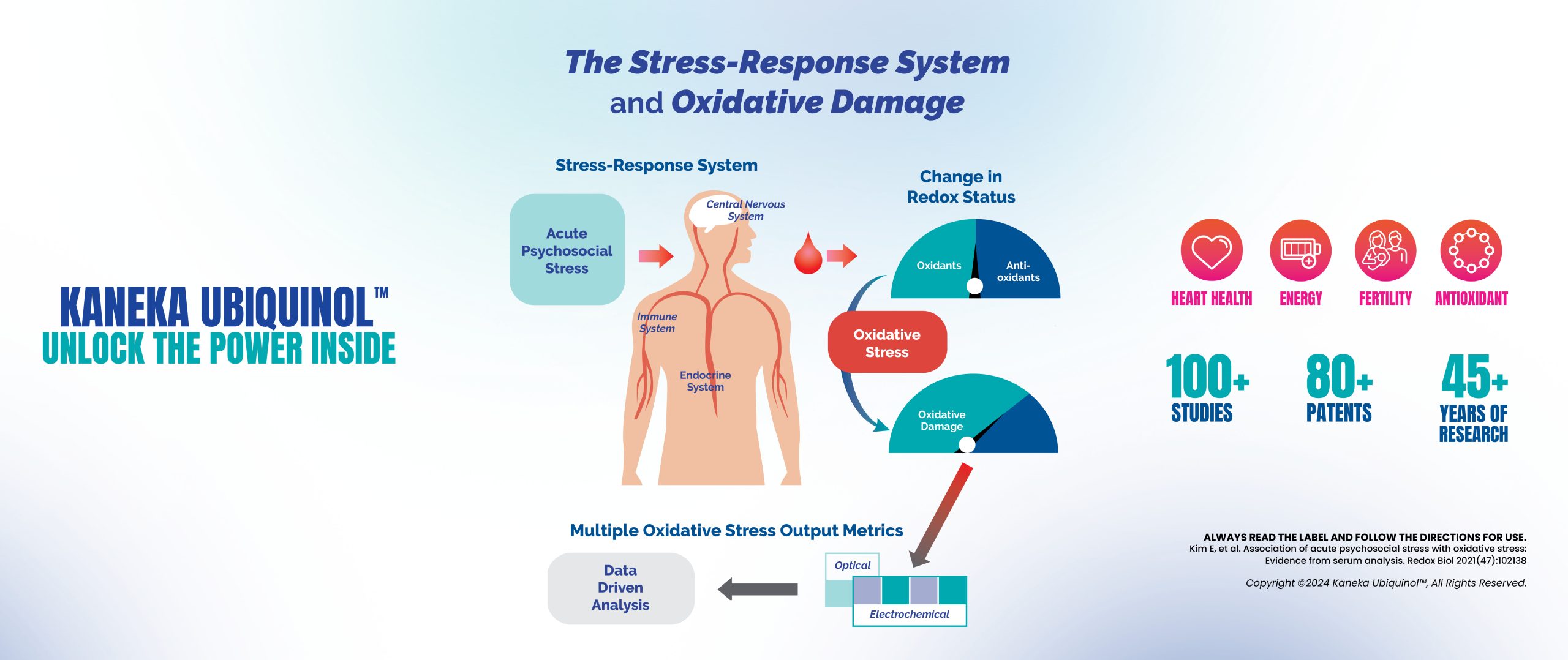Ubiquinol: your ageing ally
Feb 2018Recent Article

While we can’t do anything about getting older, we may be able to make changes to the way we age. We find out what you can do today, to ensure you look as young as you feel tomorrow.
Alongside eating well, exercising regularly and keeping social, Ubiquinol may be another powerful weapon you can deploy to help feel young. Ubiquinol, otherwise known as Coenzyme Q10 (CoQ10), is a naturally-occurring nutrient found in nearly every cell of our body and may help fight the causes of ageing. These causes, called free radicals and oxidative stress, occur due to everyday pollutants such as a bad diet, smoking, pollution, and ill health.
Day-to-day living and exposure to the production of free radicals causes damage to our cells. As the strongest known lipid-soluble antioxidant, Ubiquinol may help fight against the free radicals and oxidative stress that destroy cells.
As we get older, our Ubiquinol levels decline, which means we’re less equipped to fight these free radicals, and as a result our bodies become more vulnerable to age-related illnesses.
Why Ubiquinol is a must
The benefits of taking Ubiquinol are numerous. As we get older we’re more susceptible to disease and illness. Our bodies use more energy to help our bodies either fight off or prevent these diseases, which drains the available amount of Ubiquinol our body has available. This may then lead to tiredness, brain fog and an inability to recover well after exercise.
While we put many of these symptoms down to ’old age‘, feeling this way may be an indication that your Ubiquinol levels need increasing.
Ubiquinol’s main benefit is to the heart. Many studies have shown ways in which CoQ10 supports heart health, as CoQ10 and its more active form, Ubiquinol, play a vital role in supporting cellular energy. They are concentrated in organs that require the most energy, such as the heart, kidney, liver and muscles. i, ii
Should I take Ubiquinol?
If you’re over the age of 30, a daily Ubiquinol supplement may help to maintain the energy levels your body needs to support good health.
If you exercise regularly – and face it, we all should be – then daily Ubiquinol could help you. It has been shown to help lower the degree of inflammation after exertion and intense physical exercise, which may help with muscle recovery.iii
For those who take statin medication to help control cholesterol levels, CoQ10 – and it’s more active form, Ubiquinol – may help counteract the muscle pain that can occur as a side effect.iv,v
How to increase your levels
Talk to your GP or local pharmacist for advice on taking Ubiquinol, particularly if you also take statin medication.
References
i Saini R. Coenzyme Q10: The essential nutrient. Journal of Pharmacy and Bioallied Sciences. 2011;3(3):466-467.
ii Ernster L, Dallner G. Biochemical, physiological and medical aspects of ubiquinone function. Biochim Biophys Acta. 1995;1271(1):195-204.
iii Sarmiento, A., Diaz-Castro, J., Pulido-Moran, M., Moreno-Fernandez, J., Kajarabille, N., Chirosa, I., Guisado, I. M., Javier Chirosa, L., Guisado, R. and Ochoa, J. J. (2016), Short-term ubiquinol supplementation reduces oxidative stress associated with strenuous exercise in healthy adults: A randomized trial. BioFactors, 42: 612–622.
iv Harper CR, Jacobson TA: The broad spectrum of statin myopathy: from myalgia to rhabdomyolysis. Curr Opin Lipidol, 2007; 18: 401–8
v Wyman M, Leonard M, Morledge T: Coenzyme Q10: a therapy for hypertension and statin-induced mylgia? Cleve Clin J Med, 2010; 77: 435–42
You can share this by:
Keep up-to-date with Ubiquinol News
Ubiquinol Headlines
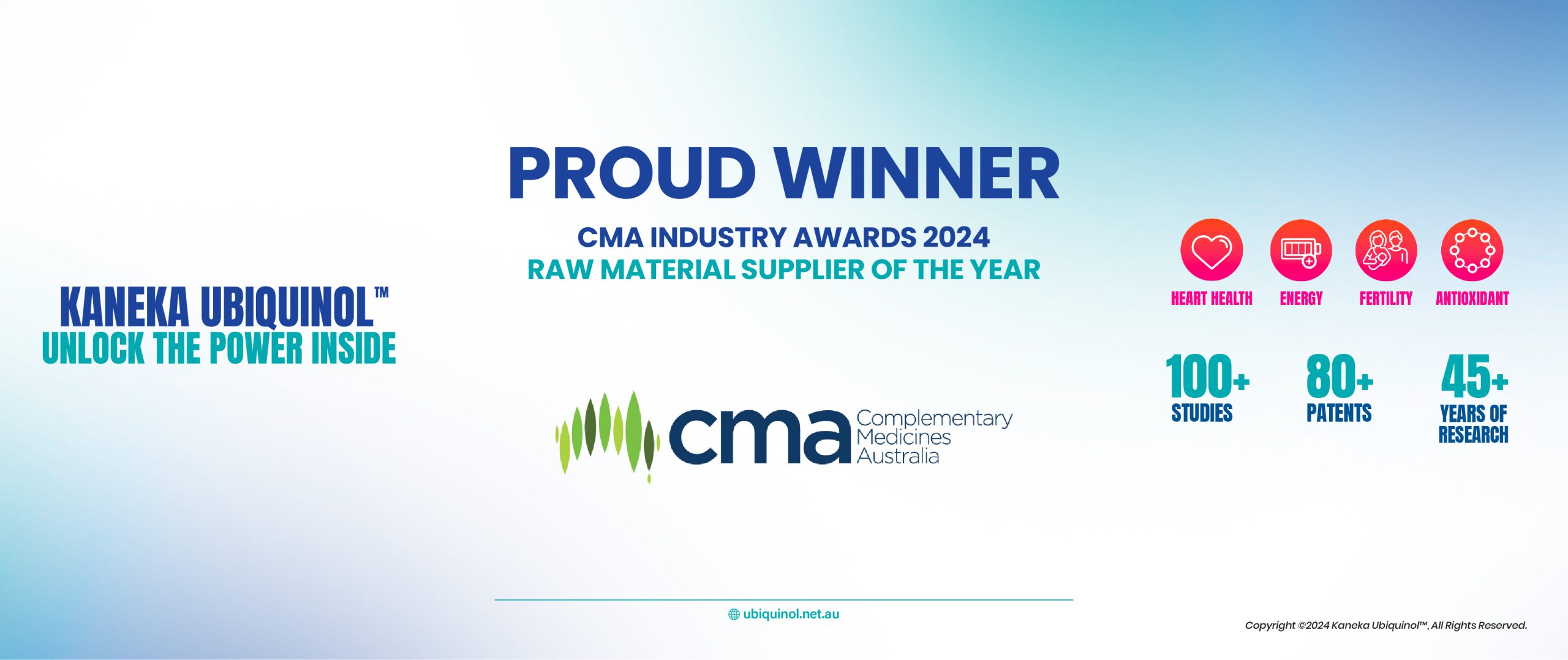
Kaneka Ubiquinol Wins Prestigious Complementary Medicines Raw Material Supplier of the Year Award 2024
Dec 2024Category: Ageing, Awards, cardiovascular health, complementary medicine, Conference, Conferences, Endurance, Energy, Fatigue, Fertility, Fitness, Health, Health Industry, healthy ageing, Heart, Immunity, In The News, Kaneka, Lungs, Memory, Mitochondrial health, Nutrition, Online, Stress, Ubiquinol, Vitamins, wellnessRead More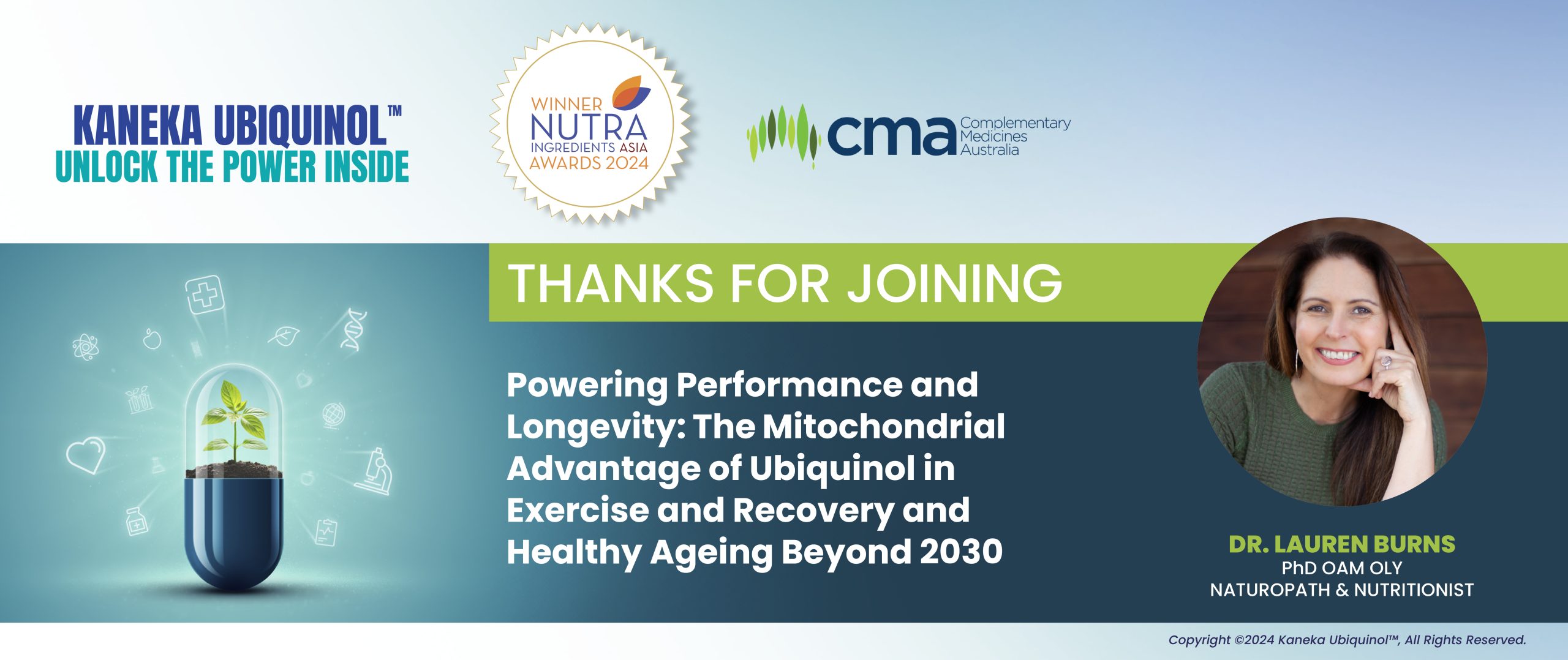
“Powering Performance and Longevity: Kaneka Ubiquinol™ at the CMA Annual Conference 2024”
Nov 2024Category: Ageing, Antioxidants, Awards, cardiovascular health, chronic fatigue syndrome, complementary medicine, Conference, Conferences, Endurance, Energy, Fatigue, Fertility, Fitness, Health, Health Industry, healthy ageing, Heart, In The News, Kaneka, Mitochondrial health, Online, Ubiquinol, VitaminsRead More
Natural Health Product Innovation Expo 2024
Nov 2024Category: Ageing, Antioxidants, cardiovascular health, Cholesterol, chronic fatigue syndrome, Conference, Conferences, Endurance, Energy, Fatigue, Fertility, Fitness, Health, Health Industry, healthy ageing, Heart, Kaneka, Menopause, Mitochondrial health, NHNZ, Nutrition, Stress, Ubiquinol, Vitamins, wellnessRead More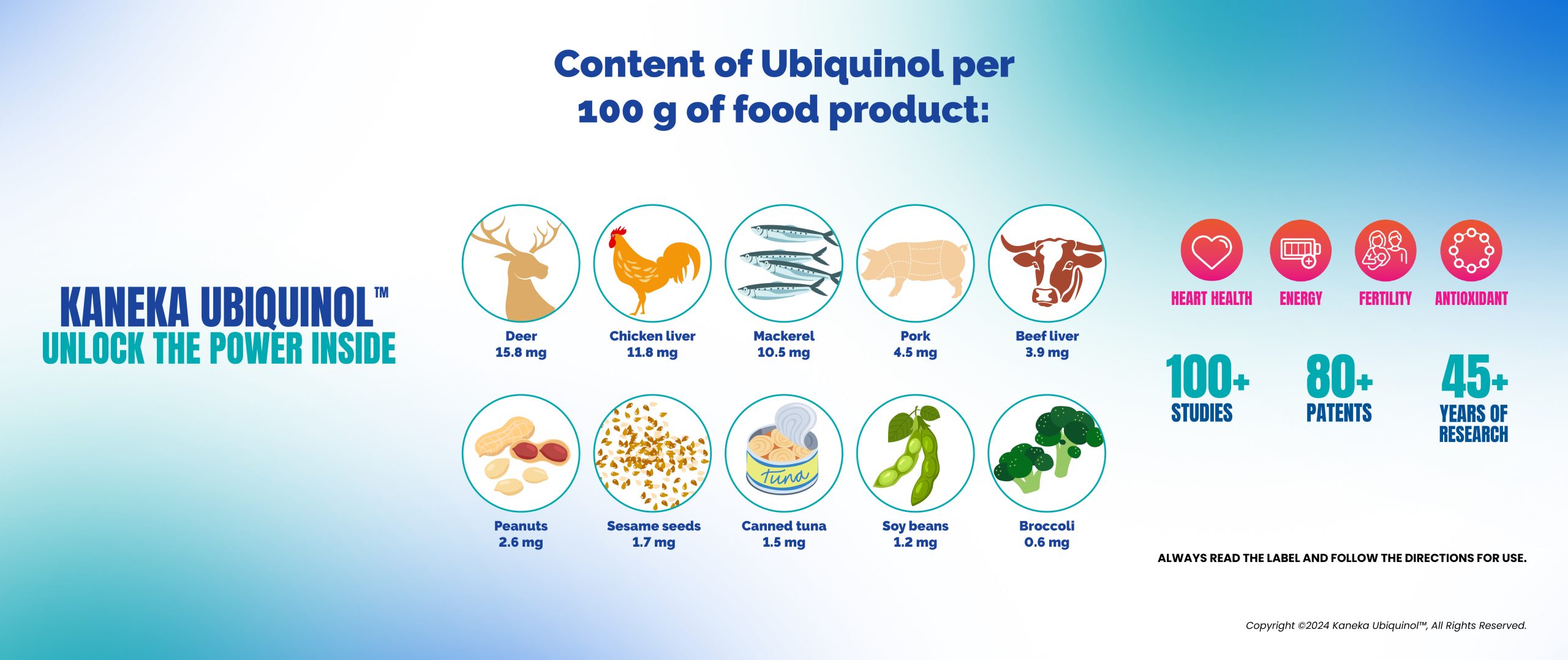
Ubiquinol: The Overlooked Nutrient for Vegans and Vegetarians
Oct 2024Category: Ageing, Antioxidants, Cholesterol, complementary medicine, Endurance, Energy, Fatigue, Fitness, Health, Health Industry, healthy ageing, Heart, Mitochondrial health, Nutrition, Stress, Ubiquinol, vitafoods, Vitamins, wellnessRead More
Investigating the Application of Ubiquinol in Mitochondrial Function
Oct 2024Category: Ageing, Antioxidants, cardiovascular health, Cholesterol, chronic fatigue syndrome, Endurance, Energy, Fatigue, Fertility, Fitness, Flu, Health, Health Industry, healthy ageing, Heart, Immunity, In The News, Kaneka, long covid, Lungs, Memory, Menopause, Mitochondrial health, myalgic encephalomyelitis, Nutrition, post pandemic, Stress, Ubiquinol, Vitamins, wellnessRead More
Kaneka Ubiquinol™ at VitaFoods Asia 2024, Bangkok
Sep 2024Category: Ageing, Antioxidants, Awards, cardiovascular health, Cholesterol, chronic fatigue syndrome, complementary medicine, Conference, Conferences, Endurance, Energy, Fatigue, Fertility, Fitness, Health, Health Industry, healthy ageing, Heart, Immunity, In The News, Kaneka, Memory, Menopause, Mitochondrial health, Nutrition, Stress, Ubiquinol, vitafoods, Vitamins, wellnessRead More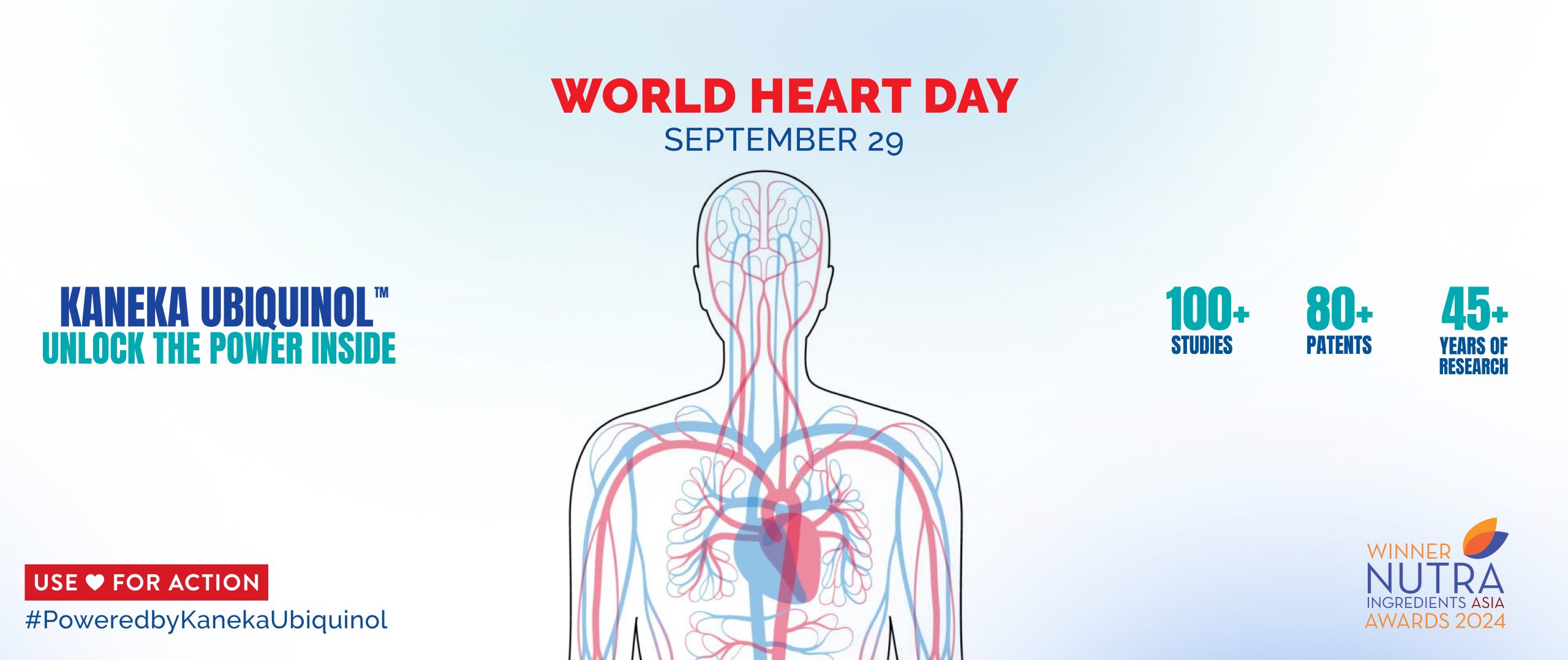
Use Heart for Action: Examining Solutions to The Global Cardiovascular Health Crisis
Sep 2024Category: Ageing, Antioxidants, cardiovascular health, Cholesterol, chronic fatigue syndrome, complementary medicine, dr ross walker, Endurance, Energy, Fatigue, Fitness, Health, healthy ageing, Heart, Kaneka, Nutrition, Stress, Ubiquinol, VitaminsRead More